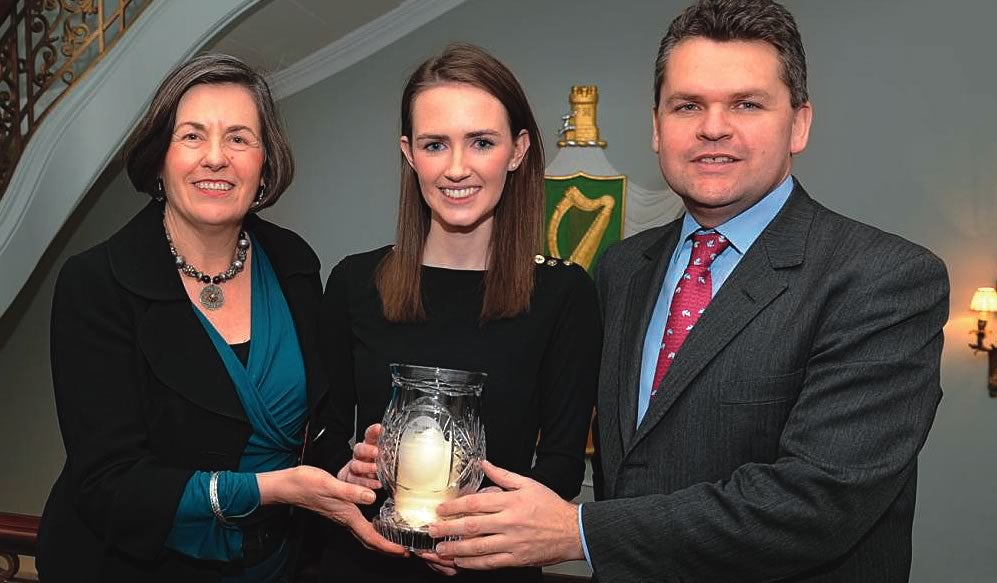An advocate for the Magdalene Laundries victims helps win an apology and reparations
Just 24 years old, Maeve O’Rourke LL.M. ’10 went to the United Nations with a bold and unprecedented case against the Irish government. Appearing in Geneva before the Committee Against Torture in 2011, O’Rourke argued that Ireland had allowed the enslavement and forced labor of thousands of women throughout most of the 20th century.
What she wanted, she told the committee, was for the government to acknowledge its complicity, to apologize and to pay reparations to the victims.
“I was writing something that no one else had said before. And it’s funny because it seems so black and white now, but at the time I was a little bit scared to even make these arguments,” O’Rourke said recently in an interview from Dublin.
O’Rourke, who had completed her master’s degree at Harvard Law just a year earlier, after graduating from University College Dublin’s law school, claimed that the government had known about and supported what have become known as Magdalene Laundries. She describes them as work camps run by four religious orders of nuns from 1922 to 1996. At least 15,000 women and girls passed through the laundries, sent by their families or the courts. Some were prostitutes, some were unwed mothers and others were simply considered flirtatious or a burden on their families.
O’Rourke’s timing was good. Two years prior to her arguments in Geneva, the Irish government had released a damning report detailing the horrific abuse suffered by thousands of children in residential schools run by the church and supervised by the government.
“It was huge news. It really broke ground in Ireland and forced people to face up to the reality of church-related child abuse,” she said. At the time, in 2009, O’Rourke had begun a gender analysis of the report as part of her studies with Visiting Professor Catharine MacKinnon at HLS. She noticed something missing amid the 2,600 pages detailing church-related institutional abuse. There was no mention of the Magdalene Laundries.
The omission stuck with her, and she resolved to rectify it. She discovered Justice for Magdalenes, and one of its advisory committee members, Boston College Professor James Smith, told her that they were thinking of going to the Irish Human Rights Commission for an inquiry.
O’Rourke told him she would write her master’s paper to be the legal submission as to why the state was responsible for this abuse and now should investigate and provide reparations.
She doubts she would have pursued the case had she not been at HLS. “The clinical approach to legal education is very empowering, and there was a real sense at Harvard that we weren’t just learning about the law for the sake of it. We were there to develop expertise and a mind of your own and a sense of what it was you could and should be doing to change things,” she said.
Upon graduation, O’Rourke was awarded a fellowship by the HLS Human Rights Program, which allowed her to work in the London office of Equality Now, an organization that fights legal discrimination against women, and to continue the Magdalene Laundries campaign.
After she went to the U.N., the Irish government set up an inquiry into state involvement with the laundries. In both religious and state records, the evidence was clear: The government had had contracts with the nuns to launder clothing from state institutions, and courts had sent women to the laundries.
In February 2013, the state apologized to the victims for the hurt and stigma they suffered. In June, it announced a €60 million restorative justice plan.
O’Rourke received the Family Law Pro Bono Lawyer of the Year Award in the United Kingdom and the Ireland Fund of Great Britain’s “Forgotten Irish” Award.
She now practices in London, focused on child and family law. She doesn’t know if she will have another opportunity “to work on something that has such an impact in terms of shaping the history of Ireland.” But she has her eyes open; she’s got “the campaigning bug.”
